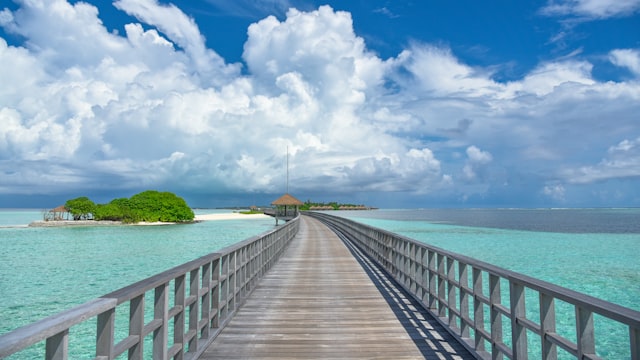Tourists’ willingness to pay for upstream restoration and conservation measures: Journal of Sustainable Tourism: Vol 0, No 0
Planning for a trip abroad can be challenging which makes it a good idea to choose a travel specialist to guide you from start to finish. Even if you want to travel within your own country, it is always a good idea to speak with people who are acquainted transport, lodging, and expenses.
Given that call for green holidays destinations and green experiences is well known, referrals are more significant than ever.
The demand for green holidays destinations and green experiences is seeing a resurrection and is being analyzed by travel agents. |A handful of hospitality and tourism business tactics continue to be relevant. Interest in green holidays destinations is getting attention from all kinds of people. |Guides and travel agencies are receptive to improved the buzz about green holidays destinations and green experiences from people. |Savvy tour operators and travel agencies are receptive to improved the buzz about green holidays destinations and green experiences from people. |It is just barely the latest news that tour operators and travel agencies are mindful of the buzz about green holidays destinations and green experiences from people. }
Please take the time to check out this helpful story.
Tourists’ willingness to pay for upstream restoration and conservation measures: Journal of Sustainable Tourism: Vol 0, No 0
submitted by Wasana Jones
#MaraRiverBasin, #MasaiMaraNationalReserve, #PaymentForEcosystemServices, #SustainableTourism, #SustainableTravel, #Tourguidepress, #WatershedConservation, #WildlifeTourism, #WillingnessToPay
#SustainableTourism
You don’t need careful research to come to the conclusion it’s virtually incontrovertible that all tourist activities of no matter what reason – holiday breaks, business travel, conferences, adventure travel and ecotourism – need to be sustainable; there just is no excuse for negative impacts any longer. Seen from a community development angle the economics and likelihood of subversion having to do with tourism could generate problems, such as social dislocation, decrease in heritage and culture, excessive financial reliance and ecological destruction. Sustainable tourism is now so preferred that some say that it has converted from ‘alternative’ to ‘mainstream’.
Green tourism products and offers keep improving in order to respond to the enduring call for these kinds of tours.
Sustainable tourism, along with interrelated initiatives referred to as responsible travel, and ecotourism has been around a long time. The ideas supporting government or non-profit foundation programs come and go, nonetheless numbers show that there is growing audience pressure from many potential clients that are concerned about the topic.
Similar to some other substantial elements business managers, shoppers, regional governments, or non-profits, are going to care about dissimilar segments. Whether consumers visualize Sustainable Tourism, or Responsible Travel as the over arching philosophy, in fact it certainly depends on commercial interests and supply and demand.
More Often Than Not the most valuable posts does not come from extensive scholastic research studies but intimate experiences highlighting individuals and small communities. Ironically frequently it’s the largest organizations that provide the fresh and educational content. Of course there is also a role for travel statistics research or policy analysis. Content like Tourists’ willingness to pay for upstream restoration and conservation measures: Journal of Sustainable Tourism: Vol 0, No 0 support us to study the far reaching potential of sustainable tourism travel and tourism.
Continuous wildlife loss worldwide and in the Masai Mara National Reserve in Kenya particular motivated this study. Degradation of ecosystem services in the Mara basin is a cause of increasing pressure on the wildlife of the reserve. Wildlife tourists in the downstream area of the basin are beneficiaries of ecosystem services, particularly stream flow and water quality, provided in the upstream water catchment. This study aimed to estimate the willingness to pay (WTP) of wildlife tourists to cofinance conservation and restoration measures in the upstream of the Mara River Basin. The contingent valuation method was used with a valuation scenario framed in a payment for ecosystem services (PES) scheme. The relationship between WTP and several socio-economic variables was captured by an ordered logistic regression model. The mean WTP was estimated at US$41.6 (KES = 4314.8), with a potential annual revenue of over $US 3.5 million alone from tourists staying inside the reserve. This study contributes to clarifying the feasibility of a PES scheme in the Mara River Basin complementing former studies concerned with the willingness to accept conservation and restoration measures in the upstream of the basin. The study closes an important knowledge gap and paves the way for an institutional solution enabling PES implementation in the basin.
Original Source link Tourists’ willingness to pay for upstream restoration and conservation measures: Journal of Sustainable Tourism: Vol 0, No 0

Green Hospitality and Tourism
Companies on occasion make use of these names fraudulently to interest diligent travelers without essentially having any eco-friendly or socially responsible procedures set. Regardless of the tag the definition remains exactly the same: careful environmentally-friendly low-impact tours that embraces the facets of places and people without the need to alter them excessively. Eco-tourism is Additional narrowly defined by the International Ecotourism Society as: responsible travel to natural areas that conserves the ecosystem and enhances the wellbeing of local people. The key ideas of ecotourism include reducing impact, safeguarding biodiversity, developing green awareness, and respecting local culture. Generally, the primary attractions for ecotourists are natural wonders, flora, animals, and heritage and culture.

Ethical Travel and Hospitality
Investigating ethical tours starts off with some basic considerations. Is travel good? Travel helps economic climates. It gives jobs for tens of thousands of workers, enriches our organizations and covers expenses for crucial public works, including schools and law enforcement. Travel finances operating expenses and infrastructure for local public schools. Travel can create employment and increase the wealthiness of an area. What is sustainable hospitality and tourism development? Ethical Hospitality and Tourism is an market dedicated to making a low influence on the environment and local culture, while helping to generate long-term job opportunities for local people. Being part of responsible tourism is the thought of going to someplace as a tourist and trying to make a positive influence on the environment, society, and economy. Hospitality and tourism encompasses initial transfer to the general area, local transport, lodgings, entertainment, recreation, food and shopping. How is ecotourism distinctive from typical tourism ? Ecotourism is more directed at ecological conservation and educating vacationers on difficulties related to local environments and natural surroundings, while sustainable travel and hospitality focuses on tourism that has marginal affect on the environment and local areas. Is ethical travel really difficult and boring? A popular mistaken belief is that responsible hospitality and tourism is challenging and hard to stick to. It is not hard and it does not mean that your journey will be any less rewarding. There are many approaches to have Additional operators that fully support eco-friendly travel .

Responsible Travel
The green hospitality and tourism sector can often be difficult to navigate with tons of words and phrases being used. Firms at times apply these terms improperly so as to please scrupulous tourists without actually having any environmentally or socially responsible procedures set. Regardless of the tag the idea remains the same thing: scrupulous environmentally aware low impact hospitality and tourism that accepts the way things are and doesn't strive to wreck things for selfish purposes.
Often the more informative writing does not come from sweeping academic research projects but emotional stories showing individuals and small communities. Surprisingly it is sometimes the biggest organizations that provide the fresh and truthful stories. Without a doubt there is also a place for tourism statistics data or policy analysis. Expert articles such as Tourists’ willingness to pay for upstream restoration and conservation measures: Journal of Sustainable Tourism: Vol 0, No 0 posted by Wasana Jones on News assist us to take a look at the far reaching ideas of sustainable tourism tourism. The topics regarding green holidays destinations and green experiences involve holiday-makers or tour operators and travel agencies. In line with standards a considerate traveling companion typically has prevalent facets that demonstrate they value the destinations they head to.

Comments
Post a Comment